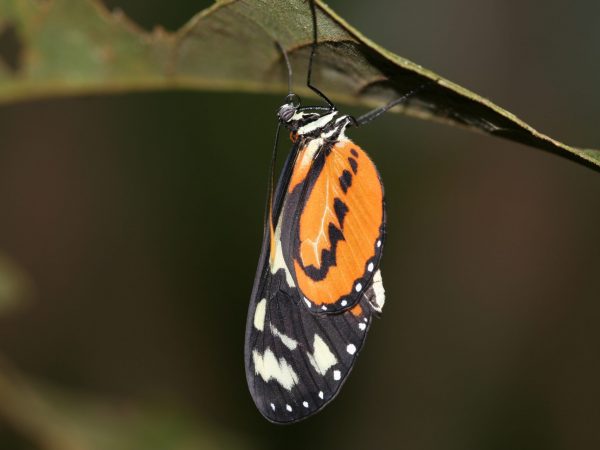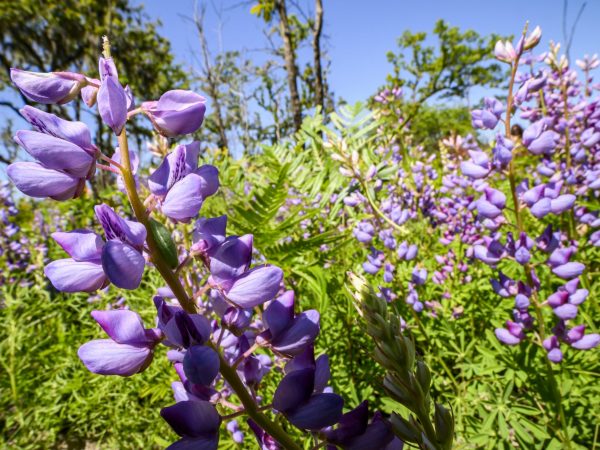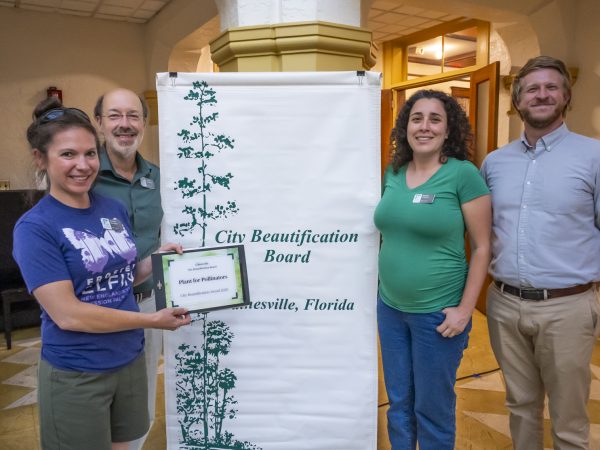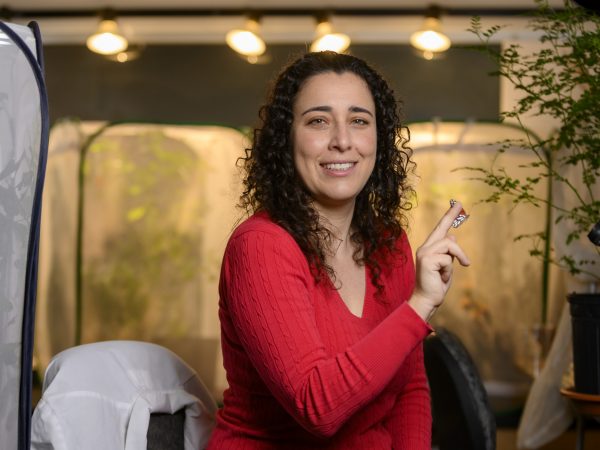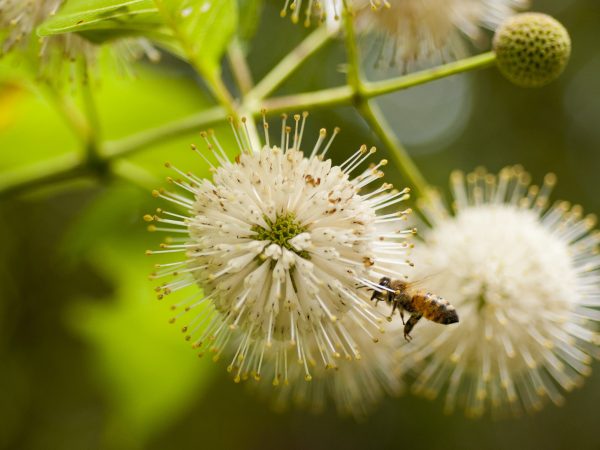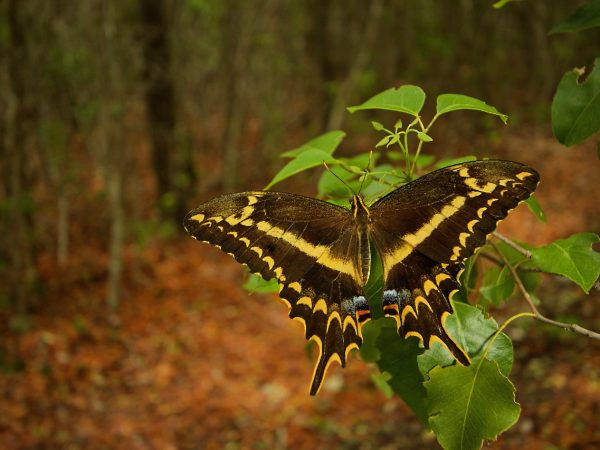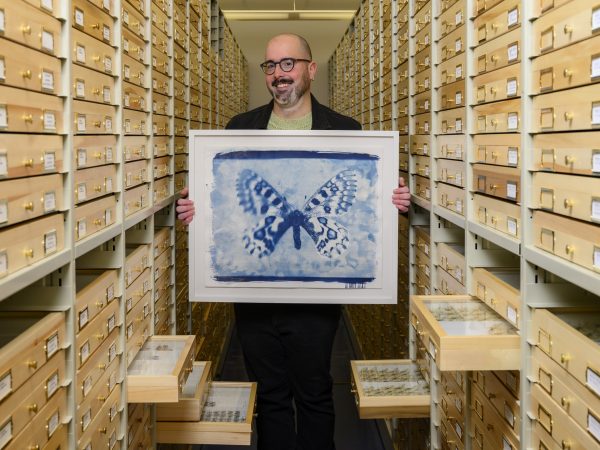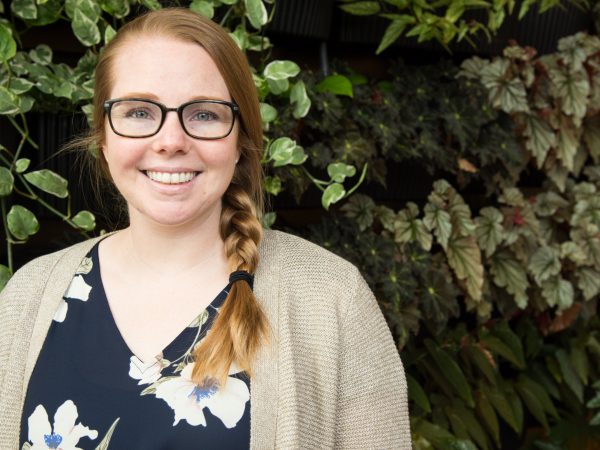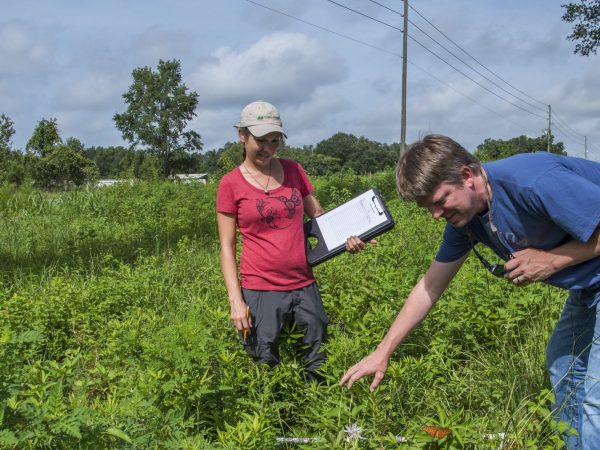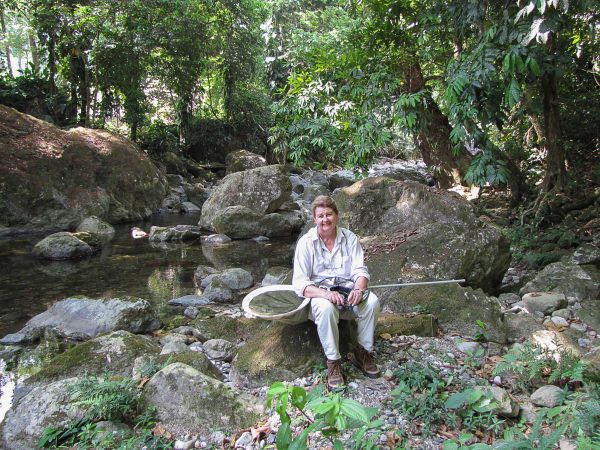Genome sequencing of butterflies resolves centuries-old conundrum
When conditions are just right, organisms can undergo rapid bursts of diversification, and what starts out as one species can…
Read More
The frosted elfin butterfly returns home to North Florida
The spring sun glinted off the cars rolling through Ichetucknee Springs State Park, but the caravan wasn’t headed to the…
Read More
Florida Museum of Natural History among winners of Gainesville Beautification Award
At a recent ceremony, the Gainesville City Beautification Board recognized ten local businesses and organizations with the 2025 Gainesville Beautification…
Read More
Florida Museum announces 2025 Austin, biodiversity and Bullen award winners
The Florida Museum of Natural History has announced the winners of its annual Austin, biodiversity and Bullen graduate student awards,…
Read More
Over one-fifth of native North American pollinators at elevated risk of extinction
A pivotal new study led by NatureServe reveals that more than 22% of native pollinators in North America are at…
Read More
Decades-long study shows this endangered butterfly benefits from hurricanes
Sometimes, nature’s surprises come with wings. In a new study, scientists pulled from a 35-year dataset to examine long-term population…
Read More
Vaughn Shirey joins Florida Museum of Natural History as newest curator of butterflies and moths
We are excited to welcome our newest curator, Vaughn Shirey, to the Florida Museum of Natural History. Working in the…
Read More
Three Florida Museum postdocs receive UF awards
Three postdoctoral associates at the Florida Museum of Natural History have received awards from the University of Florida highlighting their…
Read More
Maintaining an essential habitat: What’s good for pollinators is good for utility companies too
Electric power companies dedicate significant resources to clearing overgrown plants and debris from the area surrounding power lines. These areas…
Read More
Remembering Florida Museum curator Jacqueline Miller
Jacqueline Miller, Allyn curator emerita at the McGuire Center for Lepidoptera and Biodiversity at the Florida Museum of Natural History,…
Read More
